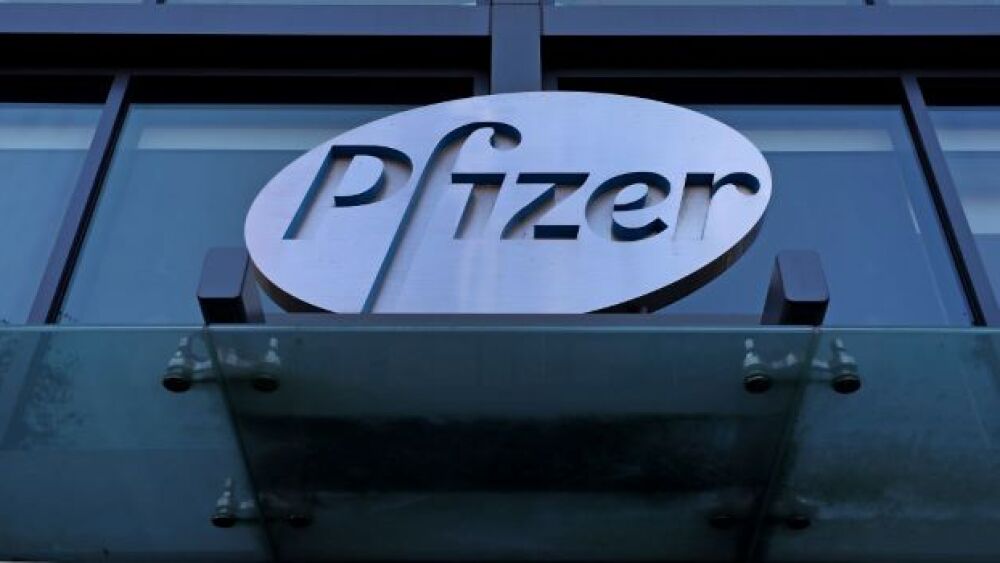Erasca announced that it was expanding its existing partnership with Pfizer to assess its ERAS-007 in combination with the Big Pharma’s Ibrance.
David L. Ryan/The Boston Globe via Getty Images
California-based Erasca announced Thursday it is expanding its existing partnership with Pfizer to assess ERAS-007 in combination with Pfizer’s Ibrance (palbociclib).
The extended clinical trial collaboration and supply agreement will see both biopharmas embark on a clinical proof-of-concept study. They will test their drug combo in pancreatic ductal adenocarcinoma patients harboring mutations in the KRAS gene, and in colorectal cancer patients with mutations in the NRAS and KRAS genes.
Erasca will sponsor the trial, while Pfizer will provide Ibrance for free.
In a statement, Jonathan E. Lim, M.D., chairman, CEO and co-founder of Erasca, said the drug combo can be highly effective in these indications because the two medicines act through complementary pathways.
“Preclinical evidence supports synergistic anti-tumor effects when downstream RAS/MAPK pathway inhibition is combined with cell cycle inhibition in CRC and PDAC,” he said. “Based on their respective mechanisms of action, ERAS-007 and palbociclib offer a promising combination to overcome adaptive resistance in patients with these highly prevalent oncogenic drivers.”
Designed as an oral medication, ERAS-007 exerts its anti-cancer effect by targeting and inhibiting the ERK1 and ERK2 signaling proteins, which disables the RAS/MAPK pathway, a central cascade in cancer.
Erasca’s candidate is being assessed in the HERKULES series of clinical trials, both as a monotherapy or in combination with other drugs, and has shown potential best-in-class activity and wide inhibitory effects across several RAS mutations.
Meanwhile, Ibrance is a cell cycle inhibitor that targets CDK4 and CDK6, both important enzymes involved in cell division. This action allows Ibrance to arrest the frenzied growth and multiplication of tumor cells, preventing the malignancy from progressing.
The combination of Ibrance and ERAS-007 is currently in a Phase Ib/II study under the HERKULES master protocol trial and is being investigated as a treatment for gastrointestinal malignancies.
Erasca and Pfizer first entered into a clinical trial collaboration and supply agreement in September last year, when both companies agreed on a Phase Ib/II study, also under the HERKULES trial series, to assess ERAS-007 with Pfizer’s Braftovi (encorafenib) in metastatic colorectal cancer with the BRAF V600E mutation.
The initial alliance between Erasca and Pfizer also sought to attack cancer on many different fronts.
“Combining upstream EGFR inhibition, midstream BRAF inhibition and downstream ERK inhibition fits squarely within Erasca’s strategies to erase cancer and has potential to limit pathway reactivation, offering the therapeutic potential to comprehensively shut down the RAS/MAPK pathway in this tumor type,” Lim noted at the time.
In April, at the annual meeting of the American Association for Cancer Research, Erasca presented promising preclinical data supporting the strong anti-cancer activity of ERAS-007 as a monotherapy and in combination with Braftovi or established cancer drugs such as cetuximab.
Erasca plans to share Phase Ib combination data for ERAS-007 plus various combination agents in lung cancer (HERKULES-2) in 2023 and in GI malignancies (HERKULES-3) in the first half of the year, David Chacko, CFO told BioSpace.
Once Erasca has defined the dose for ERAS-007 in these combinations and established preliminary safety and efficacy, the company will then move to dose expansion studies, Chacko said.
Depending on the outcome of those studies, Erasca will “speak with the FDA and other health authorities to discuss regulatory timelines, including potential accelerated approval where warranted,” he added.
Earlier this year, Erasca announced a clinical trial collaboration and supply agreement with Eli Lilly to evaluate another asset, ERAS-601, an oral SHP2 inhibitor, with Lilly’s anti-EGFR antibody cetuximab.






